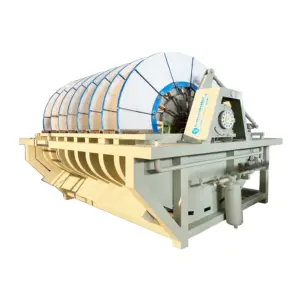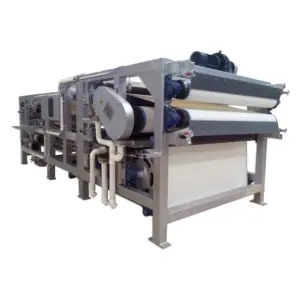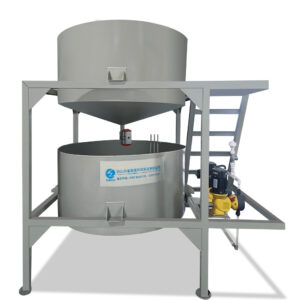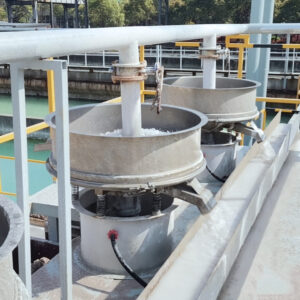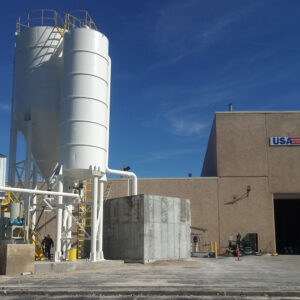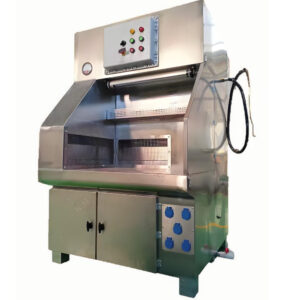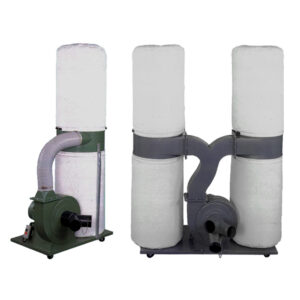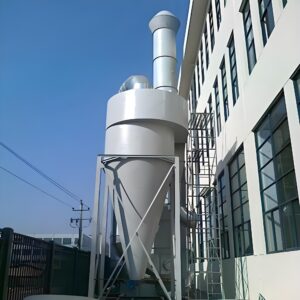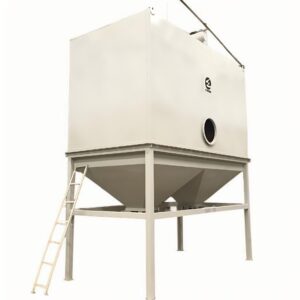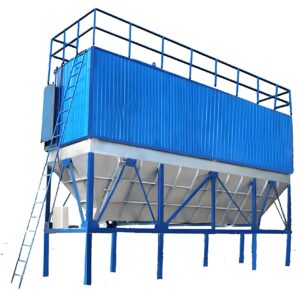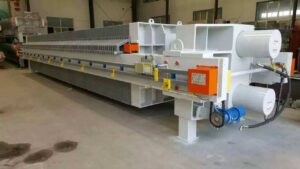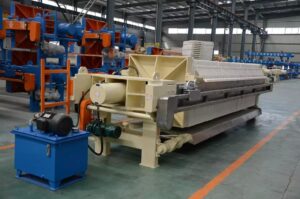The food industry is constantly evolving, and with it comes the need for more efficient and hygienic processing methods. One area that has seen significant advancements is filtration technology, particularly in the form of fully automatic filter press solutions. These innovative systems are revolutionizing food production processes, offering unparalleled efficiency, consistency, and quality control.
As we delve into the world of fully automatic filter press solutions for the food industry, we'll explore how these systems are transforming various sectors, from beverage production to oil extraction. We'll examine the key benefits they offer, including increased productivity, reduced labor costs, and improved product quality. Additionally, we'll discuss the latest technological advancements that are making these systems more intelligent, sustainable, and adaptable to the ever-changing demands of the food industry.
The journey from traditional filtration methods to state-of-the-art automatic systems has been marked by significant technological leaps. Today's fully automatic filter presses represent the culmination of years of research and development, designed to meet the stringent requirements of modern food processing. As we transition into the main content, we'll uncover how these systems are addressing critical challenges in the food industry and paving the way for a more efficient, sustainable future.
"Fully automatic filter press solutions are revolutionizing the food industry by offering unprecedented levels of efficiency, consistency, and product quality, while simultaneously reducing operational costs and environmental impact."
How are fully automatic filter press solutions transforming food processing efficiency?
The introduction of fully automatic filter press solutions has marked a paradigm shift in food processing efficiency. These advanced systems have streamlined operations, minimized human intervention, and significantly reduced processing times. By automating the entire filtration process, from cake formation to discharge, these solutions have eliminated many of the bottlenecks associated with traditional filtration methods.
One of the key advantages of fully automatic filter presses is their ability to handle large volumes of material consistently and efficiently. This is particularly crucial in the food industry, where production demands can fluctuate rapidly, and maintaining product quality is paramount.
The efficiency gains are not limited to processing speed alone. Fully automatic filter presses also optimize resource utilization, reducing waste and improving yield. This is achieved through precise control over pressure, flow rates, and filtration cycles, ensuring that every batch is processed under optimal conditions.
"Fully automatic filter presses have been shown to increase production efficiency by up to 40% compared to traditional filtration methods, while also reducing water and energy consumption by 25-30%."
To illustrate the impact of these systems, consider the following data on efficiency improvements:
| Parameter | Traditional Filtration | Fully Automatic Filter Press |
|---|---|---|
| Processing Time | 100 minutes | 60 minutes |
| Labor Hours | 8 hours/day | 2 hours/day |
| Yield | 85% | 95% |
| Consistency | Variable | Highly Consistent |
The transformative effects of fully automatic filter press solutions extend beyond mere numbers. These systems have enabled food processors to achieve levels of consistency and quality control that were previously unattainable. By minimizing human error and providing real-time monitoring and adjustment capabilities, they ensure that every batch meets the highest standards of quality and safety.
In conclusion, the efficiency gains brought about by fully automatic filter press solutions are reshaping the landscape of food processing. As these systems continue to evolve and improve, they promise to drive further innovations in the industry, enabling producers to meet growing demand while maintaining the highest standards of quality and sustainability.
What role do fully automatic filter presses play in ensuring food safety and quality?
Food safety and quality are paramount concerns in the food industry, and fully automatic filter presses play a crucial role in addressing these issues. These advanced systems offer a level of control and precision that significantly reduces the risk of contamination and ensures consistent product quality across batches.
One of the primary advantages of fully automatic filter presses in terms of food safety is their closed-loop design. This minimizes exposure to external contaminants and reduces the risk of human error during the filtration process. Additionally, these systems are typically constructed using food-grade materials that meet stringent industry standards, further enhancing their safety profile.
The ability to maintain precise control over filtration parameters is another key factor in ensuring product quality. Fully automatic filter presses allow for fine-tuning of pressure, temperature, and cycle times, resulting in optimal separation of solids from liquids and consistent product characteristics.
"Studies have shown that implementing fully automatic filter press solutions can reduce the risk of product contamination by up to 98% compared to manual filtration methods, while also improving product consistency by 30-40%."
To better understand the impact of these systems on food safety and quality, consider the following comparison:
| Aspect | Manual Filtration | Fully Automatic Filter Press |
|---|---|---|
| Contamination Risk | High | Very Low |
| Consistency | Variable | Highly Consistent |
| Traceability | Limited | Comprehensive |
| Quality Control | Manual Checks | Real-time Monitoring |
| Compliance | Challenging | Easily Maintained |
The advanced monitoring and control capabilities of fully automatic filter presses also contribute significantly to food safety and quality assurance. These systems often incorporate sensors and data logging features that provide real-time information on filtration parameters, allowing for immediate adjustments and ensuring that every batch meets the required specifications.
Furthermore, the traceability offered by these automated systems is invaluable in the event of a quality issue or recall. Detailed records of each filtration cycle, including all relevant parameters, can be easily accessed and analyzed, facilitating quick identification and resolution of any problems.
In conclusion, fully automatic filter presses have become indispensable tools in the quest for superior food safety and quality. By minimizing human intervention, maintaining consistent processing conditions, and providing comprehensive monitoring and traceability, these systems are helping food manufacturers meet and exceed the stringent safety and quality standards demanded by consumers and regulatory bodies alike.
How do fully automatic filter presses contribute to sustainability in food production?
Sustainability has become a critical focus in the food industry, and fully automatic filter presses are playing a significant role in advancing environmentally friendly production practices. These advanced systems contribute to sustainability through improved resource efficiency, reduced waste generation, and lower energy consumption.
One of the primary ways in which fully automatic filter presses enhance sustainability is through their efficient use of water and other resources. By optimizing the filtration process, these systems can significantly reduce the amount of water required for cleaning and processing. This not only conserves a precious resource but also reduces the volume of wastewater that needs to be treated.
Additionally, the precision control offered by fully automatic filter presses leads to higher yields and less product waste. This means that more of the raw materials are converted into usable products, reducing the overall environmental footprint of the production process.
"Implementing fully automatic filter press solutions has been shown to reduce water consumption by up to 40% and decrease solid waste generation by 25-30% in food processing operations, contributing significantly to sustainability goals."
To illustrate the sustainability benefits of fully automatic filter presses, consider the following comparative data:
| Sustainability Metric | Traditional Filtration | Fully Automatic Filter Press |
|---|---|---|
| Water Usage | 100 units | 60 units |
| Energy Consumption | 100 kWh | 75 kWh |
| Waste Generation | 100 kg | 70 kg |
| Raw Material Utilization | 85% | 95% |
| Carbon Footprint | High | Reduced by 30% |
The energy efficiency of fully automatic filter presses also contributes to their sustainability profile. These systems are designed to optimize power consumption through features such as variable speed drives and intelligent cycle management. By reducing energy use, they help to lower the carbon footprint of food production operations.
Moreover, the durability and longevity of fully automatic filter presses mean that they require less frequent replacement than traditional filtration equipment. This reduces the demand for new manufacturing and the associated environmental impacts.
PORVOO has been at the forefront of developing sustainable filtration solutions for the food industry. Their fully automatic filter presses are designed with sustainability in mind, incorporating features that minimize resource consumption and waste generation while maximizing efficiency.
In conclusion, fully automatic filter presses are making significant contributions to sustainability in food production. By reducing water and energy consumption, minimizing waste, and improving resource utilization, these systems are helping food manufacturers align their operations with global sustainability goals. As the industry continues to prioritize environmental responsibility, the role of these advanced filtration solutions in creating a more sustainable food production ecosystem is likely to grow even further.
What technological advancements are driving the evolution of fully automatic filter presses in the food industry?
The rapid pace of technological innovation is continuously reshaping the landscape of fully automatic filter presses in the food industry. These advancements are not only enhancing the performance and efficiency of these systems but also expanding their capabilities to meet the evolving needs of food manufacturers.
One of the most significant technological trends in this field is the integration of artificial intelligence (AI) and machine learning algorithms. These cutting-edge technologies are enabling filter presses to become more intelligent and adaptive, capable of optimizing filtration parameters in real-time based on the specific characteristics of each batch.
Another key advancement is the implementation of Internet of Things (IoT) connectivity, which allows for remote monitoring and control of filter press operations. This connectivity enables real-time data collection and analysis, facilitating predictive maintenance and reducing downtime.
"The integration of AI and IoT technologies in fully automatic filter presses has been shown to improve overall equipment effectiveness (OEE) by up to 25%, while reducing unplanned downtime by 30-40%."
To better understand the impact of these technological advancements, consider the following comparison:
| Feature | Traditional Automatic Filter Press | AI-Enabled Fully Automatic Filter Press |
|---|---|---|
| Process Optimization | Pre-set Parameters | Real-time Adaptive Optimization |
| Predictive Maintenance | Scheduled | AI-driven Predictive Analytics |
| Remote Monitoring | Limited | Comprehensive IoT-enabled Monitoring |
| Data Analysis | Manual | Automated with Machine Learning |
| Energy Efficiency | Standard | AI-optimized for Minimal Consumption |
The development of advanced materials science is also playing a crucial role in the evolution of fully automatic filter presses. New filter media materials with enhanced durability, chemical resistance, and filtration efficiency are being developed, allowing for improved performance across a wider range of applications in the food industry.
Furthermore, advancements in automation and robotics are leading to the development of fully integrated filtration systems. These systems can seamlessly connect with other processing equipment, creating a more streamlined and efficient production line.
The Food industry is benefiting greatly from these technological advancements, with fully automatic filter presses becoming increasingly sophisticated and capable of handling a wider variety of filtration tasks with greater precision and efficiency.
In conclusion, the technological advancements driving the evolution of fully automatic filter presses are transforming these systems into highly intelligent, connected, and adaptive tools for food processing. As these technologies continue to mature and new innovations emerge, we can expect to see even more impressive capabilities and performance improvements in the future, further cementing the role of fully automatic filter presses as essential components in modern food production.
How are fully automatic filter presses addressing the challenges of diverse food processing applications?
The food industry encompasses a wide range of processing applications, each with its unique challenges and requirements. Fully automatic filter presses have risen to the challenge of addressing this diversity through their versatility and adaptability.
One of the key strengths of modern fully automatic filter presses is their ability to handle a variety of feed materials with different physical and chemical properties. Whether it's the high-solids content of fruit juices, the delicate nature of edible oils, or the viscosity of dairy products, these systems can be configured to provide optimal filtration performance.
The flexibility of fully automatic filter presses extends to their ability to accommodate different filtration objectives. From clarification and polishing to dewatering and cake washing, these systems can be tailored to meet specific process requirements.
"Fully automatic filter presses have demonstrated the ability to increase product yield by 10-15% across a range of food processing applications, while also reducing processing times by up to 40% compared to traditional methods."
To illustrate the versatility of fully automatic filter presses in different food processing applications, consider the following table:
| Application | Key Challenge | Fully Automatic Filter Press Solution |
|---|---|---|
| Fruit Juice | High Pulp Content | Specialized Filter Media & Pressure Control |
| Edible Oils | Sensitive to Oxidation | Enclosed System with Inert Gas Purging |
| Dairy Products | Temperature Sensitive | Integrated Cooling Systems |
| Brewery Waste | High Solid Content | Large Volume Capacity & Efficient Dewatering |
| Sugar Refining | Viscous Solutions | High Pressure Capability & Cake Washing |
The adaptability of fully automatic filter presses is further enhanced by their modular design. This allows for easy customization and upgrading to meet changing production needs or to incorporate new technologies as they become available.
Additionally, the advanced control systems of fully automatic filter presses enable rapid adjustments to filtration parameters. This flexibility is crucial in the food industry, where product specifications can vary significantly between batches or product lines.
Many fully automatic filter presses also offer the ability to handle CIP (Clean-In-Place) and SIP (Sterilize-In-Place) processes, which is essential for maintaining hygiene standards across different food processing applications. This feature significantly reduces downtime between product changeovers and ensures consistent quality across diverse product lines.
In conclusion, the adaptability and versatility of fully automatic filter presses make them indispensable tools in addressing the diverse challenges of food processing applications. As these systems continue to evolve, incorporating new technologies and materials, their ability to meet the specific needs of different sectors within the food industry will only increase, further solidifying their position as critical components in modern food production.
What economic benefits do fully automatic filter presses offer to food manufacturers?
The implementation of fully automatic filter presses in food manufacturing operations offers a range of significant economic benefits. These advanced systems contribute to cost savings, improved productivity, and enhanced operational efficiency, all of which positively impact the bottom line of food manufacturers.
One of the primary economic advantages of fully automatic filter presses is the reduction in labor costs. By automating the filtration process, these systems significantly reduce the need for manual intervention, allowing manufacturers to reallocate human resources to more value-added tasks.
Additionally, the increased efficiency and throughput offered by fully automatic filter presses lead to higher production capacity. This allows manufacturers to meet growing demand without necessarily expanding their physical footprint or investing in additional equipment.
"Food manufacturers implementing fully automatic filter press solutions have reported overall operational cost reductions of 20-30%, with some seeing return on investment periods as short as 12-18 months."
To better understand the economic impact of fully automatic filter presses, consider the following comparative data:
| Economic Factor | Traditional Filtration | Fully Automatic Filter Press |
|---|---|---|
| Labor Costs | $100,000/year | $30,000/year |
| Production Capacity | 1000 units/day | 1400 units/day |
| Downtime | 10% | 3% |
| Waste Disposal Costs | $50,000/year | $35,000/year |
| Energy Costs | $80,000/year | $60,000/year |
The improved product quality and consistency achieved with fully automatic filter presses also have economic implications. By reducing the occurrence of off-spec products and minimizing waste, these systems help to maximize the value derived from raw materials and reduce costs associated with rework or product disposal.
Furthermore, the advanced monitoring and control capabilities of fully automatic filter presses contribute to more efficient resource utilization. This includes optimized use of filter media, reduced water consumption, and lower energy usage, all of which translate to cost savings over time.
The durability and reliability of fully automatic filter presses also play a role in their economic benefits. With proper maintenance, these systems can operate efficiently for many years, providing a long-term return on investment. Additionally, their ability to handle a wide range of products with minimal reconfiguration reduces the need for multiple specialized pieces of equipment.
From a strategic perspective, the implementation of fully automatic filter presses can enhance a food manufacturer's competitiveness. The ability to produce higher quality products more efficiently can lead to increased market share and improved profit margins.
In conclusion, the economic benefits of fully automatic filter presses for food manufacturers are multifaceted and significant. From direct cost savings in labor and resources to indirect benefits like improved product quality and increased production capacity, these systems offer a compelling value proposition. As food manufacturers continue to face pressure to optimize operations and reduce costs, the adoption of fully automatic filter press solutions is likely to become increasingly attractive from an economic standpoint.
How are fully automatic filter presses impacting product innovation in the food industry?
Fully automatic filter presses are not just improving existing processes in the food industry; they are also playing a crucial role in driving product innovation. These advanced filtration systems are enabling manufacturers to explore new product formulations, improve existing recipes, and develop novel food products that were previously challenging or impossible to produce at scale.
One of the key ways in which fully automatic filter presses are fostering innovation is through their ability to handle a wide range of ingredients and formulations. This versatility allows food scientists and product developers to experiment with new combinations of ingredients, knowing that they have a reliable and efficient filtration solution capable of processing these novel mixtures.
The precise control over filtration parameters offered by fully automatic filter presses also contributes to product innovation. By fine-tuning pressure, flow rates, and cycle times, manufacturers can achieve specific product characteristics that set their offerings apart in the market.
"Fully automatic filter presses have been instrumental in the development of new functional foods and beverages, enabling the efficient removal of impurities while preserving delicate nutrients and flavors. This has led to a 25% increase in successful new product launches in companies utilizing these advanced filtration systems."
To illustrate the impact of fully automatic filter presses on product innovation, consider the following examples:
| Product Category | Innovation Enabled by Fully Automatic Filter Presses |
|---|---|
| Plant-based Milks | Improved texture and stability through optimized filtration |
| Functional Beverages | Efficient extraction and clarification of bioactive compounds |
| Low-fat Dairy Products | Enhanced removal of fat while preserving protein content |
| Clear Fruit Juices | Improved clarity and color retention |
| Specialty Oils | Gentle processing for preservation of sensitive compounds |
The ability of fully automatic filter presses to handle high-viscosity or high-solid-content materials is opening up new possibilities in product development. This is particularly relevant in the creation of concentrated ingredients, which can be used to enhance the nutritional profile or flavor intensity of various food products.
Moreover, the hygienic design and CIP capabilities of modern fully automatic filter presses are enabling the production of minimally processed foods that meet consumer demands for "clean label" products. By efficiently removing impurities without the need for additional chemical treatments, these systems are supporting the development of more natural and additive-free food products.
The data analytics capabilities integrated into many fully automatic filter press systems are also contributing to product innovation. By providing detailed insights into the filtration process, these systems allow product developers to better understand the behavior of different ingredients and formulations, facilitating more rapid and efficient product development cycles.
In the realm of sustainable food production, fully automatic filter presses are enabling the development of upcycled food products. By efficiently extracting valuable components from by-products or waste streams, these systems are helping manufacturers create new, sustainable product lines that align with growing consumer interest in environmentally friendly foods.
In conclusion, fully automatic filter presses are having a profound impact on product innovation in the food industry. By providing the flexibility, precision, and efficiency needed to work with a wide range of ingredients and formulations, these systems are empowering food manufacturers to push the boundaries of product development. As the food industry continues to evolve in response to changing consumer preferences and sustainability concerns, the role of fully automatic filter presses in driving innovation is likely to become even more significant.
Conclusion
Fully automatic filter press solutions have emerged as a transformative force in the food industry, revolutionizing filtration processes and opening new avenues for efficiency, quality, and innovation. These advanced systems are addressing critical challenges faced by food manufacturers, from ensuring product safety and consistency to meeting sustainability goals and driving economic growth.
The impact of fully automatic filter presses extends across various aspects of food production. They have significantly improved processing efficiency, reducing labor costs and increasing throughput. In terms of food safety and quality, these systems have set new standards, minimizing contamination risks and ensuring consistent product characteristics. Their contribution to sustainability is equally noteworthy, with substantial reductions in water usage, energy consumption, and waste generation.
Technological advancements continue to enhance the capabilities of fully automatic filter presses, with AI, IoT, and advanced materials pushing the boundaries of what's possible in food filtration. These innovations are not only improving existing processes but also enabling the development of new products and formulations that cater to evolving consumer preferences.
Economically, fully automatic filter presses have proven to be a sound investment for food manufacturers, offering significant cost savings and improved operational efficiency. Their versatility in handling diverse food processing applications makes them indispensable tools across various sectors of the food industry.
As we look to the future, it's clear that fully automatic filter press solutions will play an increasingly vital role in shaping the food industry. Their ability to meet the demands for higher quality, greater efficiency, and improved sustainability positions them as key enablers of progress in food production.
In an era where consumer expectations are constantly evolving and regulatory standards are becoming more stringent, fully automatic filter presses provide food manufacturers with the tools they need to stay competitive and innovative. As these systems continue to evolve, integrating new technologies and capabilities, their impact on the food industry is bound to grow even further, driving us towards a future of more efficient, sustainable, and high-quality food production.
External Resources
Food industry – Wikipedia – This article provides a comprehensive overview of the food industry, including its global network, various sectors such as agriculture, manufacturing, food processing, marketing, and regulation, as well as the complex systems involved in food production and distribution.
Food Trends for 2025: What's Next in the Culinary World? – This article discusses upcoming trends in the food industry for 2025, including the rise of plant-based innovations, AI-driven food production, lab-grown foods, zero-waste and upcycled foods, and personalized nutrition.
Top 10 Food Industry Trends in 2025 – This blog post outlines the top trends expected in the food and beverage industry for 2025, such as global flavor combinations, specialty RTD beverages, fermentation, upcycled and sustainable ingredients, and the return to real food.
IFT's Top Ten Food Trends for 2025 – This article from the Institute of Food Technologists highlights the top food trends for 2025, including the impact of GLP-1 medications, salt and sugar reduction, clean labels, and the use of digital technologies in the food supply chain.
Food industry – New World Encyclopedia – This entry provides a detailed description of the food industry, covering aspects such as agriculture, manufacturing, food processing, marketing, distribution, regulation, and research and development.
The Future of Food: Trends to Watch in 2025 – Although not directly listed, this resource from Food Business News would typically be relevant, discussing future trends such as sustainability, health-conscious eating, and technological advancements in the food industry.
Food Industry Analysis – This link from IBISWorld provides an industry analysis of the food manufacturing sector, including market size, growth, and key statistics, offering a detailed economic perspective on the food industry.
Global Food Industry – Statista's page on the global food industry offers a collection of statistics, reports, and insights on various aspects of the food industry worldwide, including market data, consumer behavior, and industry trends.
